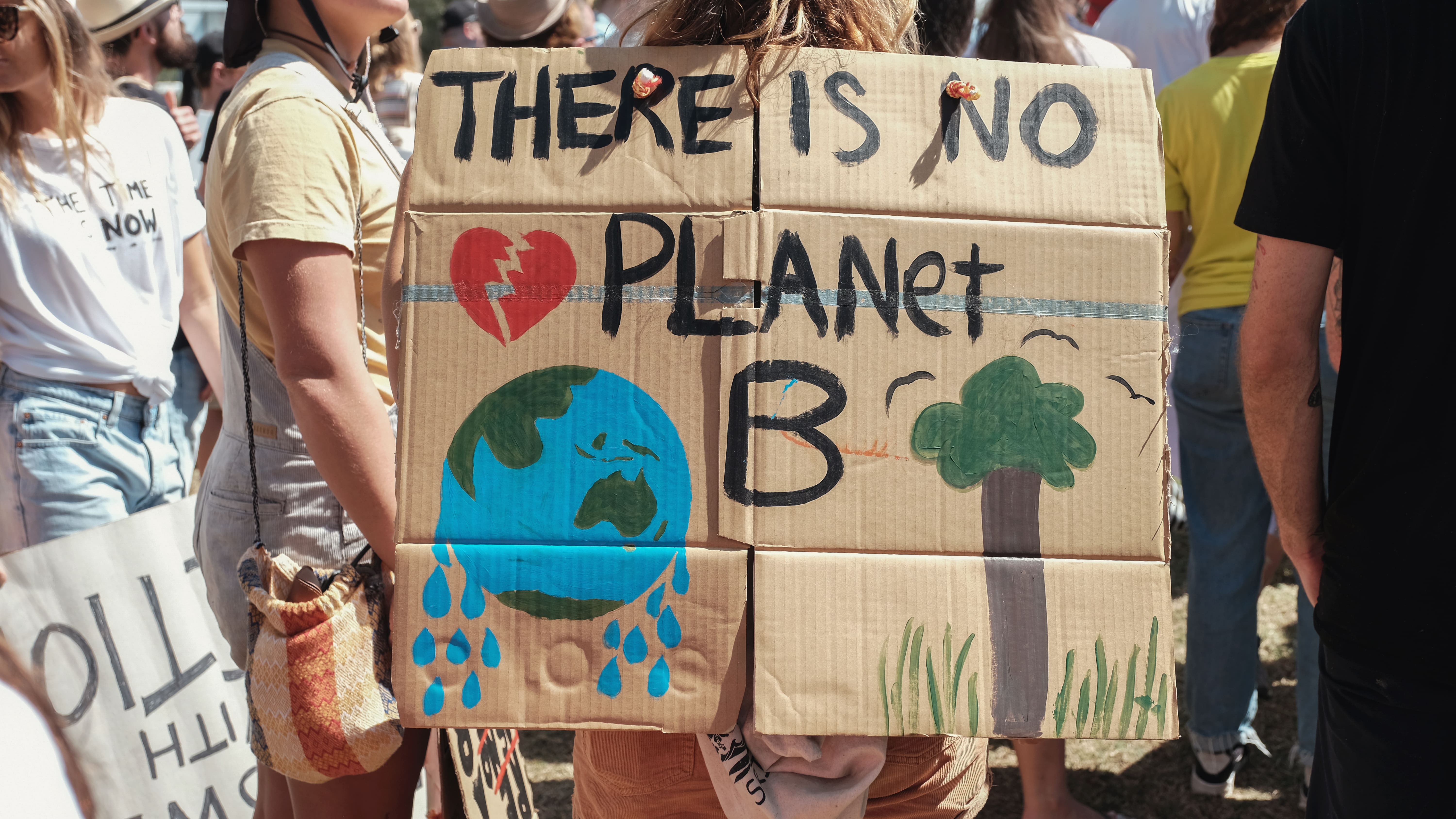Share This Article
Image credit: SewCream
Sahar Adatia and Jimmy Singh.
Australia’s plan to tackle climate change has recently fallen under intense scrutiny.
Indeed, as Prime Minister Scott Morrison revealed the nation’s plan to reach net zero emissions by 2050 ahead of the upcoming international climate change conference in Glasgow, the main question being asked by just about everyone was how Australia is going to get there.
The response entailed a vague claim that the actual modelling for this plan would come “eventually”.
Now, as dissatisfaction grows amongst the community against an increasingly palpable climate change crisis, one body in particular has responded with a mighty protest.
In the early hours of Wednesday 27 October 2021, climate change activists from the protest group “Extinction Rebellion” decided they would glue themselves to a major bridge in Melbourne’s CBD in response to the Australian government’s failure to act on climate change.
At least seven Extinction Rebellion “rebels” were found glued to Princes Bridge near Flinders Street Station, where they blocked peak-hour traffic and caused complete turmoil as the city emerged from lockdown.
By around 7:30am, dozens of protesters had also joined the mob, holding up signs, chanting and showing support to the activists stuck to the road, while a rope was also hung across the road that held placards signifying that “life is hanging by a thread”.
All the while, another two protesters decided they would lock themselves together through a pipe and situate themselves on the road.
Police were forced to carry them away to saw it off.
Protesters Ignore Public Pleas to Get off the Road
For many members of the community, the Extinction Rebellion protest was met with great anger.
Many, stuck amongst the traffic, yelled at the activists to get off the road and stop blocking the way.
But the pleas fell on deaf ears.
Speaking in response to the protest, one activist, going by the name of Mark, declared he glued himself to the road because of the Australian government’s – and those around the world – failure to act on climate change.
“The government has set a target of net zero by 2050, but this is like being told we are poisoning our water supply and saying we’ll do something about it in 10 years,” Mark said.
“Our government is refusing to act, so it falls to everyday citizens like us.”
The protester added his belief that the government was “profiting off the wholesale destruction of the planet”.
Mark was eventually unglued from the road by police and led away.
“I don’t want to be doing this, I want to be playing music, hanging out with my friends,” he said of his rally.
“We have to stand in the way, we have to disrupt because they will not listen to us otherwise.”
Specialist public order police were forced to intervene and endeavoured past 9am to free the protesters, as fellow activists in the background chanted “you’re a climate hero” while each was unglued from the road and taken away by police.
Following this, officers managed to return traffic and trams to normal movement.
Seven people were arrested and were later interviewed by police.
Protesting Laws in NSW
The right to protest is indeed a principal element of liberal democracy. This right is also reflected in the International Convention on Civil and Political Rights. Australia is a party to one.
Nevertheless, when you choose to participate in a protest, there are laws in place that must still be abided by.
Participating in an unauthorised public assembly or protest can result in a range of offences.
The meaning of a ‘public assembly’ is an “assembly held in a public place, and includes a procession so held”.
Section 23 Summary Offences Act 1988 (NSW) provides for what constitutes an authorised public assembly in NSW in contrast to an unauthorised public assembly.
Part 4 Summary Offences Act 1988 (NSW) outlines that an authorised public assembly provides for an exemption to all those participants from being subject to any offences resulting from the participation of such a type of protest.
In contrast, participation in an unauthorised or prohibited public assembly will not exempt the participants from any resulting offences.
Noting the above law on it, whether a protest is authorised or prohibited, no law prohibits public assemblies, provided they are conducted within the conditions and restrictions.
Police are permitted to arrest those suspected of committing an offence (or who are committing an offence) provided the suspicion is based on reasonable grounds, provided the police officer at the time believes that the arrest is reasonably necessary to stop the offence, to stop him/her from getting away, to establish his/her identity, or to secure his/her attendance at court in relation to a charge, according to section 99 Law Enforcement (Powers and Responsibilities) Act 2002 (NSW).
There are also penalties of up to $550 fine and/or 6 months imprisonment to knowingly join an unlawful assembly or continue in one if the assembly is of 5 or more people whose common purpose is by means of intimidation or injury to compel a person to do what the person is not legally bound to do or to abstain from doing what the person is legally entitled to do. This is prescribed in section 545C Crimes Act 1900 (NSW).
Obstructing Traffic in NSW
If you are in NSW, unless you have a reasonable excuse, it is against the law to wilfully prevent the free passage of vehicles, vessels or people in a public place.
This law is outlined in section 6 of the Summary Offences Act 1988, which prescribes a maximum penalty of $440.
Questions about appeals? Our appeals lawyers Sydney team provide a first free consult.









